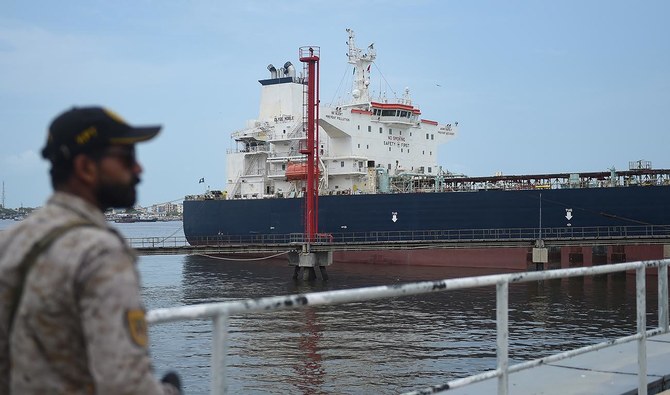KARACHI: Pakistan is negotiating with Russia to import another crude oil cargo after successfully processing the first ever cargo imported in June this year, the CEO of Pakistan Refinery Limited (PRL) said on Monday.
Pakistan imported 100,000 tons of discounted Russian crude oil under a government to government (G2G) deal signed between Islamabad and Moscow early this year as Islamabad explores the diversification of its energy imports at cheaper rates. Pakistan plans to meet 20 percent of its oil requirement from Russia.
Pakistan Refinery blended Russian Urals oil with crude imported from its traditional Gulf markets.
“The Russian crude was successfully processed and the spot deal was technically and commercially feasible,” PRL CEO Zahid Mir told Arab News on Monday. “Currently negotiations for another spot deal are in progress … We would again process Russian crude when available at favorable commercial terms.”
Pakistan had imported Russian oil in two shipments, with the first cargo arriving on June 11, with 45,122 tons of crude oil, described by outgoing Pakistani Prime minister Shehbaz Sharif as a “transformative day” for the crisis-hit South Asian nation. A second shipment containing 55,000 metric tons reached the Karachi port on June 27, offering relief to the country amid an acute balance-of-payments crisis and currency depreciation.
The country’s purchase also provided Russia a new market, adding to Moscow’s growing sales to India and China, as it redirects oil from Western countries in the wake of its invasion of Ukraine.
Under the deal, Pakistan made payments to Russia in Chinese currency due to the dollar shortage and the Sharif government had said it would continue to import more shipments under the same mechanism to save foreign exchange.
Pakistan imported more than 9 million tons of crude worth $5.5 billion in fiscal year 2021-2022, which declined to 7.8 million tons worth $4.9 million in the previous financial year 2022-2023, according to the Pakistan Bureau of Statistics (PBS).
Overall petroleum imports during the outgoing fiscal year, FY23, were $17 billion as compared to $23.3 billion imported in the previous financial year.
















